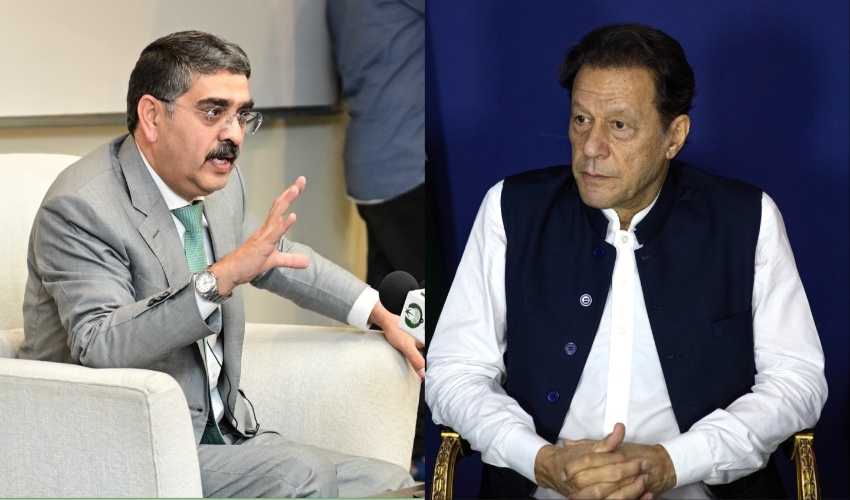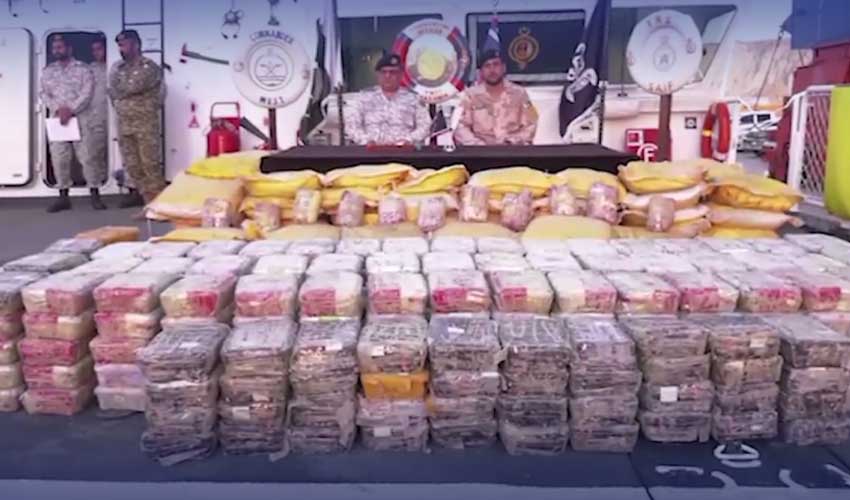Caretaker Prime Minister Anwaarul Haq Kakar issued on Wednesday a stern warning to Pakistan Tehreek-e-Insaf (PTI), cautioning the party against the potential political repercussions of its recent letter to the International Monetary Fund (IMF).
In an exclusive interview on Samaa TV's programme "Redline with Talat," terming PTI's approach as "highly irresponsible," Kakar highlighted concerns over the party's decision to involve the IMF in Pakistan's internal political matters.
Mr Kakar's remarks come in the wake of PTI's move to urge the IMF to consider Pakistan's political stability in any further bailout talks, a move that has sparked debate and raised concerns among political circles.
The interim premier minced no words in expressing his disapproval of PTI's initiative to address the IMF directly regarding Pakistan's political stability.
Stressing the existence of established forums for addressing electoral grievances, Haq Kakar criticised PTI's move as ill-advised and potentially detrimental to the country's interests.
"This is a very bad move," Haq Kakar emphasized during the televised interview. "There are relevant forums for solving election problems. This letter will have no effect."
Kakar went further to caution PTI of the potential political price it may have to pay for its actions.
Missing persons issue
He said, “According to official records, significant progress has been made in tracing missing individuals, with 64 out of 68 persons from one list and 20 out of 26 from another successfully located.” Similarly, he noted that 20 out of 26 individuals from another list had also been located.
The premier also shed light on Pakistan's economic challenges, emphasizing that the caretaker government's primary focus was on improving the economy.
Kakar said that positive discussions are underway with the International Monetary Fund (IMF), with hopes of securing a substantial financial package to bolster Pakistan's economic stability.
One notable concern raised by the PM is the involvement of Pakistani citizens as non-state actors, extending their participation from local conflicts to areas as far-reaching as Syria. This highlights the complex dynamics of Pakistan's involvement in regional conflicts.
Kakar also highlighted the lack of data concerning individuals found hanging or killed, emphasizing the need for comprehensive records to address such incidents effectively. Additionally, he discussed the challenges posed by Pakistani citizens residing in Afghan camps, underscoring the complexities surrounding cross-border migration and its implications for national security.
Addressing diplomatic relations, PM Kakar referenced Pakistan's response to incidents involving its citizens in neighboring countries like Iran, stressing the importance of protecting Pakistani nationals abroad.
On the domestic front, the premier emphasized the need for constructive dialogue and efforts to address the issue of missing persons. He highlighted the establishment of commissions at both provincial and federal levels to investigate such cases thoroughly.
In addressing human rights violations, he also acknowledged that violations could occur both by state and non-state actors, emphasizing the state's responsibility to uphold the political and economic rights of its citizens, particularly in provinces like Balochistan.
PM Kakar expressed optimism about the formation of a new government within the next 48 to 72 hours. He emphasized the importance of legislative action by the incoming government to address the issue of missing persons, recognizing it as a significant challenge that needs urgent attention.



























